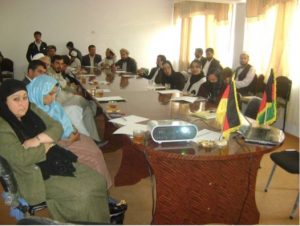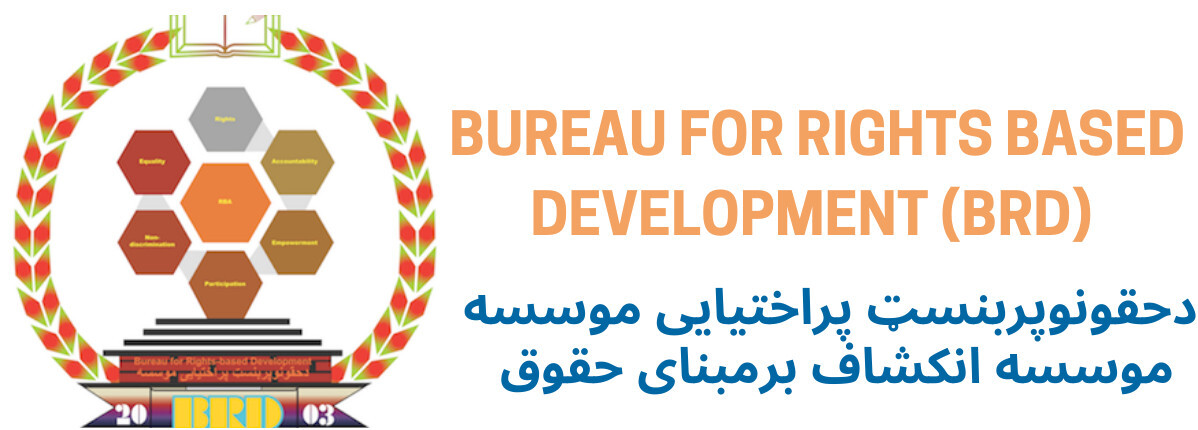 The ultimate goal of this project was to strengthen, improve, and increase the quality of participation in conflict-resolution dialogue among members of Afghan administration and civil society.The acquisition of better and more effective mediation skills is the key to making further, more successful development in Afghanistan possible; a fact that is also supported by the conclusions reached in 2007’s international ‘Peace and Justice’4 conference, and further emphasized by the Nuremberg ‘Declaration for Peace and Justice,’5 issued in 2008.This declaration, as well as the experiences of similar initiatives, has helped to contribute to the formulation of CM-ASCA’s project goals. The strategy that HVSG and BRD hopes to implement in order to achieve these goals relies on the transmission of new knowledge and skills from members of civil society to all relevant actors; in particular, those working within local administration. The ‘Train the Trainer’ principle is one way in which to ensure that local responsibility is taken for the transmission of mediation and problem-solving skills, and also to encourage fruitful and positive interaction among members of civil society. Both goals will contribute to the eventual creation of a system of ‘Good Governance.’in Afghanistan – a well-balanced integration of civil society and government in addressing social and economic change. Overall, this project aims to have a sustainable impact on various levels of Afghan society. Specifically, it seeks to bring about: The advancement of political stability through the improvement of civil discourse (in methods of conflict-resolution)• The creation of a more effective, transparent, and legitimate administrative systemthrough enhancing the role of social legitimacy and transparency in the reconstruction process.
The ultimate goal of this project was to strengthen, improve, and increase the quality of participation in conflict-resolution dialogue among members of Afghan administration and civil society.The acquisition of better and more effective mediation skills is the key to making further, more successful development in Afghanistan possible; a fact that is also supported by the conclusions reached in 2007’s international ‘Peace and Justice’4 conference, and further emphasized by the Nuremberg ‘Declaration for Peace and Justice,’5 issued in 2008.This declaration, as well as the experiences of similar initiatives, has helped to contribute to the formulation of CM-ASCA’s project goals. The strategy that HVSG and BRD hopes to implement in order to achieve these goals relies on the transmission of new knowledge and skills from members of civil society to all relevant actors; in particular, those working within local administration. The ‘Train the Trainer’ principle is one way in which to ensure that local responsibility is taken for the transmission of mediation and problem-solving skills, and also to encourage fruitful and positive interaction among members of civil society. Both goals will contribute to the eventual creation of a system of ‘Good Governance.’in Afghanistan – a well-balanced integration of civil society and government in addressing social and economic change. Overall, this project aims to have a sustainable impact on various levels of Afghan society. Specifically, it seeks to bring about: The advancement of political stability through the improvement of civil discourse (in methods of conflict-resolution)• The creation of a more effective, transparent, and legitimate administrative systemthrough enhancing the role of social legitimacy and transparency in the reconstruction process.
